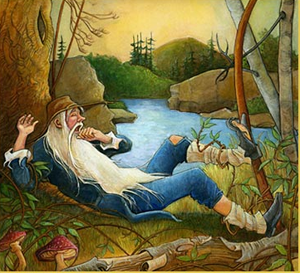As seen from America, France and specifically Paris have long been considered a cauldron of vice, lust, lewdness, debauchery and perversion.
Wasn't! This is an urban legend. French women in particular (who were shy and innocent persons) have a dreadful reputation in the eyes of America whereas it's an American woman who was at the root of all evil.
Have you ever heard of Nathalie Clifford Barney who may well be considered the serial killer of sapphism? Among her many friends were Renée Vivien, Liane de Pougy, Romaine Brooks, Elisabeth de Grammond, Dolly Wilde (the niece of Oscar), Emma Calvé, Colette, Lucie Delarue-Mardrus, Djuna Barnes and on and on and on...
Although the most prominent of them all, Nathalie Clifford Barney wasn't the only American lesbian in Paris since you could also mention Janet Flanner, Margareth Anderson who had a liaison with Georgette Leblanc, Solita Solano...
Actually, Nathalie Clifford Barney may be viewed as the harbinger of what was to become the trademark of Paris as the place of devilish sexual depravity in the eyes of Americans back home. And yet, Clifford Barney's souvenir has been shadowed by another American lesbian who arrived in Paris ten years later.
An educated and talented woman, Gertrude Stein already possessed all the prerequisites that would allow her to be introduced among the intellectual Parisian elite of arts and literature. Her relationship with Alice B. Toklas lasted until Stein died in 1947. Theirs was the most famous lesbian couple of that time and as everyone knows they were at the center of the American artistic community in Paris from the 20s to 1940.
Now the point of the post of course in not to make a comprehensive list of all these women but rather to underline how important they were at that time for the artistic world in Paris and how their lives definitively identified the presence of America in France during the first half of the XXth century.
To my knowledge, these Americans were much more influential than French lesbians may have been during all these years and also, it looks like these women seduced many more French women than the other way round.
As written at the beginning of the post, hitherto French women were innocent lambs. But again, what do I know?
As written at the beginning of the post, hitherto French women were innocent lambs. But again, what do I know?





